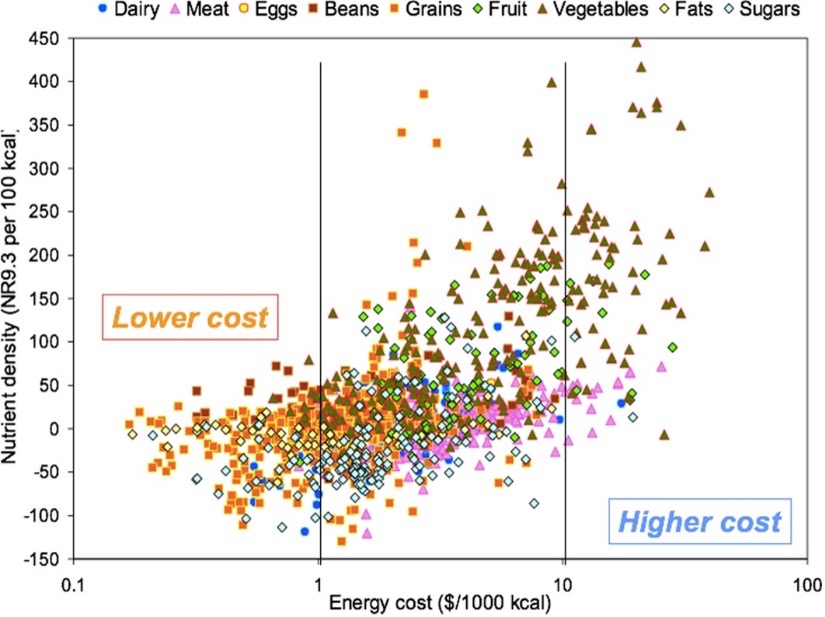“Although sustainable diet research has focused on health and the environment, the social and economic dimensions of sustainable diets and food systems should not be forgotten.” – Nicholls and Drewnowski, 2021.
As highlighted earlier in this series, over 820 million people were affected by hunger in 2021. In addition, over 1.3 billion people across the globe experienced moderate food insecurity in 2018, meaning a lack of consistent access to food to ensure a healthy diet could be achieved. There are multitudes of reasons that this may be the case, from absolute and relative poverty, to living in a ‘food desert’; the concept where an individual lives in a region that removes the option to purchase nutritious food. For example, if an individual cannot afford transportation to the nearest supermarket that sells fresh produce, then that nutritious food is not available to them. These health inequalities alluded to above are well researched, and despite policies aiming to bridge the gap between deprived and affluent regions (for example the Levelling up policy in the UK), these are arguably getting wider. The Marmot review ‘Fair Society, Healthy Lives’ in 2010 highlighted that people in lower socio-economic brackets, who experience greater levels of deprivation, experience greater mortality and morbidity than those experiencing less deprivation. Importantly, these are shown to be preventable, and, ironically, there is a strong economic case for action in this area: health inequalities in the UK were shown to cost between £36 and £40 billion through lost taxes, welfare payments, and NHS costs.
Nutrient rich food tends to be more expensive, on a calorie for calorie basis. Using a number of nutrient databases, Adam Drewnowski created the Nutrient Rich Food indices. These show that foods higher on the Nutrient Rich Food index were typically higher in cost, as shown in the figure below. The economic aspect of sustainable nutrition is no small task and is a complex, multifaceted problem.

Clearly, there is lots of work to be done in order to provide a healthy, nutrient-dense diet to the world’s population. But starting by minimising food waste is at least one way we can contribute to making this a reality.

